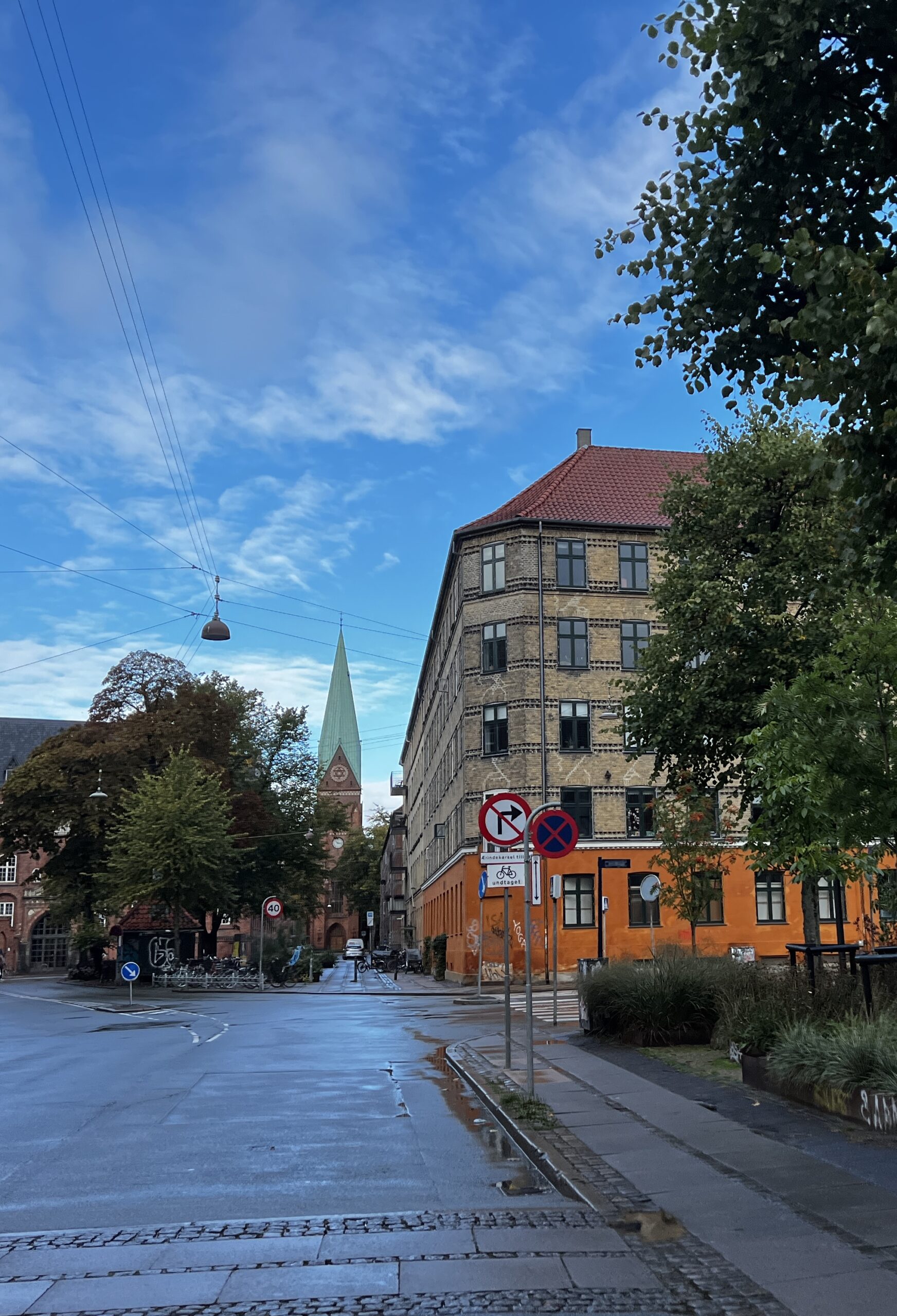Liverpool
The teeth of the excavator are wet. The cage opens, hovers, and grips a mouthful—some floor, some outer wall, some window frame, the glass disappearing with a tiny, tinkling sound.
Now, suddenly, the bedroom of the upstairs flat is revealed. A ragged cut-away, leaving just one perfect wall, wallpapered. Poppies on a purple field. The room, when it was a room, was probably small and ordinary; now, illuminated, it is the envy of all other rooms, the ultimate mezzanine. Light pours in from everywhere and the window frames blue sky.
I watch from my kitchen threshold, making tea. I’m so close to the excavator that when it tips its tracks over the rubble mountain and caterpillars towards me, I close the door to keep it from falling into my face. I open the door again when it moves on; I can’t help but watch.

Underneath the excavator’s neck, the pollinators are flourishing. I have planted foxgloves in my rented garden, and they have grown along the fence to almost obscene heights, bending under their own weight. The heads—ruffled with speckled pink bells—bounce.
As soon as the bells opened last week, showing their trails of magenta pollen, the bees came. They dip in, dip out. They drag around the grass, loved up. I am saving the bees, I think. Then I remember butterflies. I haven’t seen a single one in this house, and didn’t the whole garden at home used to twitch and flutter with butterflies? How often would a petal or leaf turn out to be the closed wings of a cabbage white? It used to scare me, as if everything in the world was something else, waiting to surprise you.

The project is called regeneration. You kill something a little bit to help it grow. Like how I’ve learned to pinch the tired brown heads off the daffodils. Trust the process.
But now that there’s a white hill of rubble at the end of my garden, I don’t know. There are going to be more apartments than before, almost double, and they’re going to be taller and more energy efficient, I know. They’ll even have a roof deck. But still, to see the rooms fall in on themselves. And all the wood. And to think that it’ll be a whole year before anything grows (so much can happen in a year), I don’t know. I say what a waste, what an awful waste to anyone who asks.

The heatwave has them moving farther to nest. Like the dogs and cats round here go out of their way to find shade; we encounter them in new spots, under our tree or on our kitchen mat. These birds might be from North Africa, but they have found themselves in Cromer, the seaside town I used to visit as a child. In the Cromer tennis club, I used to sit with a packet of crisps in a green-painted pavilion, which felt then as hot as a parked car, too hot.
They’ve built a viewing platform already, so that visitors can park up alongside the quarry and see the rainbow birds try to settle. They do so quickly, boring holes the size of their heads into the crumbling earth, perching on the telephone wires above the quarry—and, leisurely, as if they’re just shooting the shit, bite flies, bugs, and occasionally bees, straight out of the sky.
The bees are still declining, but they’ve been declining since the fifties. The arrival of the bee-eaters sounds like a sign, but it’s not really. The birds won’t drive the bees away, not today; the bees are more affected by the strangeness of human routines, the pesticides all over the surfaces of things, the shaking up of places. So we can watch the bee-eaters all day if we want, without thinking of the bees.
Georgina Parfitt lives in Liverpool. Her stories can be found at the Dublin Review, Ambit, and Granta. She is currently working on a collection of stories.




